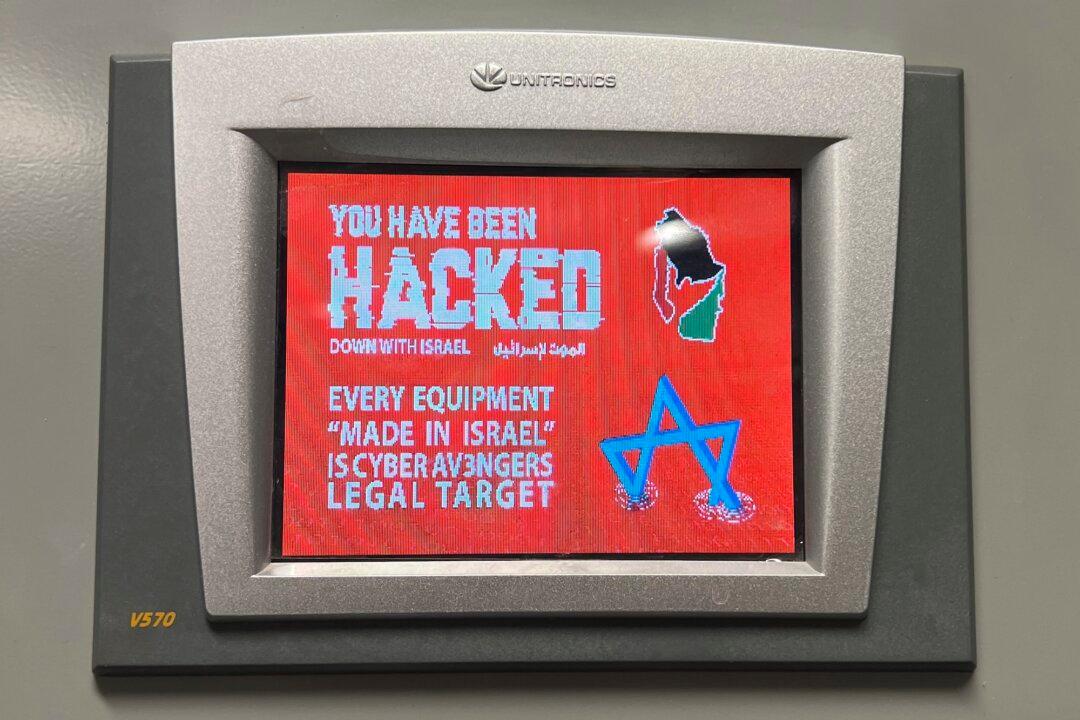Multiple federal agencies are warning that Iran-linked hackers have been targeting U.S. water systems and other industries that use programmable-logic controllers (PLC) made by Israeli firm Unitronics, as the Israel–Hamas war simmers in the background.
Hackers affiliated with the Islamic Revolutionary Guard Corps (IRGC) have engaged in “malicious cyber activity” targeting PLC operational technology devices used in the U.S. water and wastewater systems sector, and in other industries including energy, food, and beverage manufacturing, since at least Nov. 22, the agencies said in a Dec. 1 alert.





